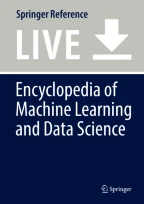
First-order predicate logic – first-order logic for short – is the logic of properties of, and relations between, objects and their parts. Like any logic, it consists of three parts: syntax governs the formation of well-formed formulae, semantics ascribes meaning to well-formed formulae and formalizes the notion of deductive consequence, and proof procedures allow the inference of deductive consequences by syntactic means. A number of variants of first-order logic exist, mainly differing in their syntax and proof systems. In machine learning, the main use of first-order logic is in Learning from Structured Data, Inductive Logic Programming, and Relational Data Mining.
The interest in logic arises from a desire to formalize human, mathematical, and scientific reasoning and goes back to at least the Greek philosophers. Aristotle devised a form of.